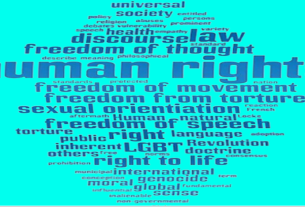(Taipei) – Taiwan’s top court on September 20, 2024, ruled that the death penalty was constitutional with greater protections, Human Rights Watch said today. The ruling addressed some concerns with the country’s death penalty, but permits the continued use of the inherently cruel punishment.
Following a legal challenge by all 37 inmates currently on Taiwan’s death row, the Taiwan Constitutional Court held that the death penalty was constitutional with greater restrictions on its use. The court’s new judgment aimed to strengthen due process rights, including by requiring unanimous sentencing by a panel of judges and prohibiting the death penalty for people with psychosocial disabilities (mental health conditions). The current death row inmates may appeal if they were sentenced without a unanimous decision or if they believe their crime does not fall into the category of “most serious” offenses, already a requirement.
“Taiwan’s new judicial restrictions should mean fewer people are sentenced to death, but the court missed a major opportunity to abolish this inherently cruel practice,” said Simon Henderson, deputy Asia director at Human Rights Watch. “Taiwan’s government should take the next step and immediately place a moratorium on death penalty use.”
Under the new ruling, the court strengthened protection during criminal proceedings, with a new requirement that the suspect or the accused must be represented by a lawyer during the investigation and police inquiry stages for the “most serious” crimes.
The ruling also expands protections under the Code of Criminal Procedure by mandating oral arguments on sentencing and the right to counsel for defense in third, and final, instance trials. In accordance with the ruling, the judgment is effective immediately and the legislature is now tasked with amending provisions of the law within two years.
In line with the new ruling, the Taiwanese government should ensure that all special appeals for current death row inmates uphold the right to due process enshrined in the International Covenant on Civil and Political Rights (ICCPR), with sufficient time and resources.
Although the ICCPR permits the death penalty in limited circumstances, its Second Optional Protocol declares that “abolition of the death penalty contributes to enhancement of human dignity and progressive development of human rights” and commits nations to ending capital punishment. The Office of the United Nations High Commissioner for Human Rights has also stated that the use of the death penalty is not consistent with the right to life and the right to live free from torture and or cruel, inhuman, or degrading treatment or punishment.
Taiwan abolished the mandatory death penalty for all crimes in 2006, but previously retained the death penalty for 50 crimes. Since 2002, all executions carried out have been for the crime of murder, most recently in 2020. The court has previously issued three rulings on the death penalty, in 1985, 1990, and 1999, retaining it each time.
“Taiwan could cement its reputation as a regional leader on human rights issues by abolishing the death penalty,” Henderson said. “The risks of a wrongful, irreversible punishment should be off the table entirely.”


